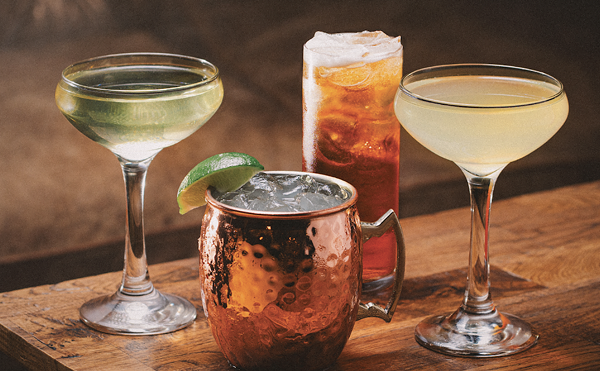Since I've been in the culinary profession most of my adult life, people naturally assume I was raised in a household where a lineage of culinary genes resides. "Your mother must be a fabulous cook," most say. Well, sort of adequate is closer to the truth, but that's not to say she didn't have a huge influence in my career in the restaurant business and as a food writer.
Just as the term "stage mother" describes a parent who instills theatrical ambition in her child, the entire upbringing of the child focused on eventual success — dammit, stardom — as its basis, you could say my mother applied this sort of child rearing technique to me. Possessing a keen sense of competition, I see her as the quintessential "dining arts mother."
Few could appreciate the problems that beset this highly specialized field. With a wealth of opportunity from chef to restaurant management and every job in between, the dining arts mother has to teach a variety of subtle skills. Let's take a look at some of her techniques for being a server.
"If I've told you once, I've told you a hundred times not to answer the first time you're spoken to. And what is with this perky attitude all of a sudden, young lady? You want to be perky? Go join the Girl Scouts and use that perkiness to sell cookies door-to-door, for all I care.
You want to be a server? Act like a server, for God's sake. A little arrogance, please. You want to what? Be helpful? OK, save the helpfulness for a celebrity or someone of influence, if you must, but for Pete's sake do not waste your time for some jerk in a cheap suit on an expense account. A little deafness will get you to captain in no time."
Her skills in preparing me as a food writer were similarly unparalleled. Raising a picky eater was a source of pride rather than a frustration for her. She encouraged me to wear disguises to the table and to answer, "How was dinner, dear?" with an aloof "fine." She instilled in me a passion for unnecessary flourishes and flowery adjectives. She was relentless in her thesaurus quizzes, demanding that I memorize Webster's and Roget's until, finally, the day came where it was my turn to shine: "Donna, how was your school lunch today?"
"Oh, Mommy, the Grilled Cheese ($.50) was delectable. The perfectly browned Butternut bread was a superb contrast to the mellow poignancy of the Velveeta. The tomato soup ($.50) asserted its tangy integrity in every delightful spoonful. The pink Snowballs (two for $.75) were robust, yet sang out a sweet adolescence that was endearing to behold. Oh, and the brownie (swiped from Billy Donovan's lunchbox) was a sinful symphony of chocolate that was simply to die for!"





